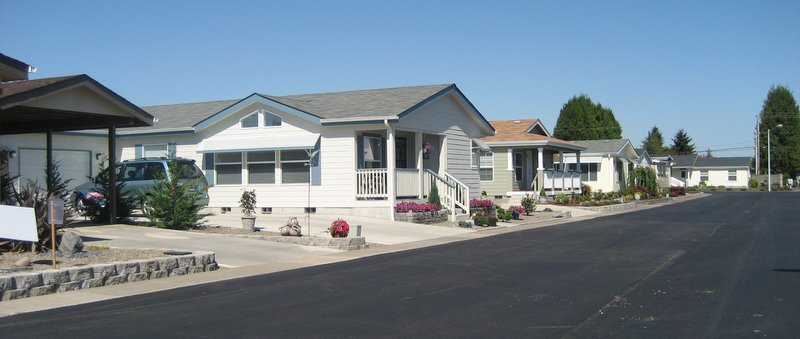Renting a site in a mobile home park is far different than renting an apartment, condo or single- family home. The State of California has adopted many laws that specifically apply to mobile home park tenancies and not to other types of rentals. Because of the different rules that apply in mobile home parks, the rental agreements and leases are longer and more comprehensive than the short few pages of a “standard” rental agreement for renting an apartment, condo or single-family home.
When a mobile home buyer makes the decision to move into a rental mobile home park, the process is more involved than just purchasing the mobile home. In fact, as a prospective mobile home park tenant they need to complete transactions that do not apply to other forms of rental housing. The purchaser of a mobile home that is located in a mobile home park must first apply to the mobile home park for residency and be approved. The mobile home purchaser may not finalize the purchase of the mobile home without first receiving the approval from the park owner to move into the park and completing and signing all of the park documents. Once this is done the sale of the mobile home may be finalized.
Included in the “move-in” documents to be signed by the prospective mobile home park resident are various disclosure forms, the parks rules and regulations, pet agreements and the rental agreement. In mobile home parks, the State law requires a park owner to offer the tenants a 12-month lease. The prospective tenant, or current resident, is responsible for picking between a month- to-month rental agreement or a one-year agreement. Additionally, many parks offer a third choice of a long-term lease agreement, which is defined as being longer than 12-months.
Typical long-term agreements are five, ten or fifteen years, but some extend to 20 years or longer. These long-term lease agreements outline in detail what the rent increases will be and under what circumstances rents may be increased. As an example, if government imposes tax increases or fees on the mobile home park, the lease will outline how those increases will be passed through to the residents. Often the lease will address the change in rent upon resale and will also address how disputes will be resolved.
A long-term lease provides certainty to mobile home owners regarding future costs. However, at any time if a mobile home owner wishes to sell their mobile home and move, they simply provide notice to the park owner.
Long term lease agreements are indeed complex legal. It is similar to other legal documents signed by business owners to lease land or a building or office space. Additionally, all legal documents must be written in English.
In this case, the mobile home owner is leasing or renting a site for the mobile home they own. Along with the site comes the various amenities offered within the mobile home park community including various facilities, as well as management and maintenance.
When considering signing a lease document — regardless of the term — it is important to review it very carefully and to fully under- stand the legal document. Park owners encourage park residents and prospective residents, who are considering long term leases, to have their legal advisor review the lease contract.


